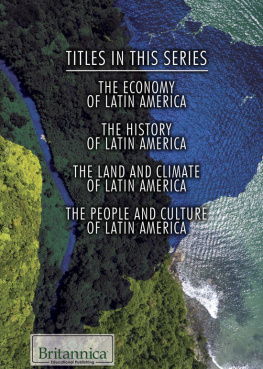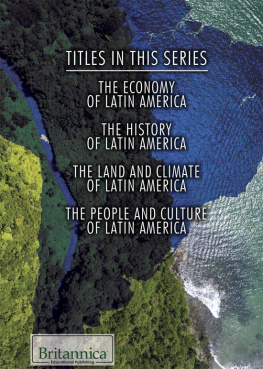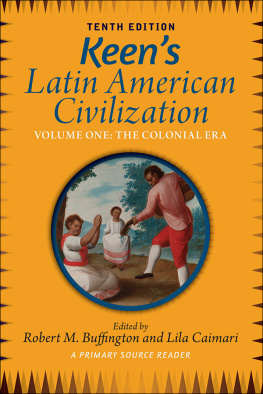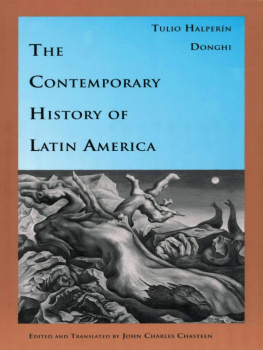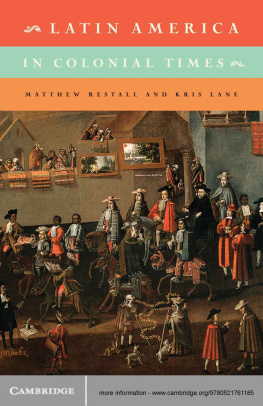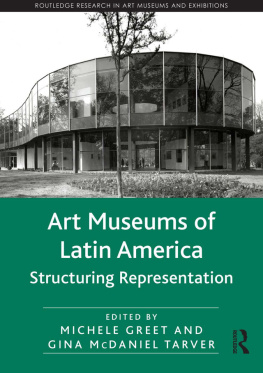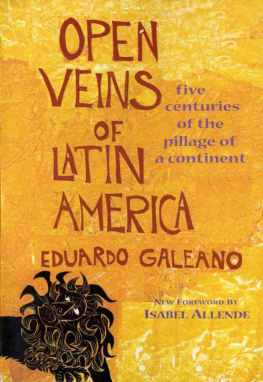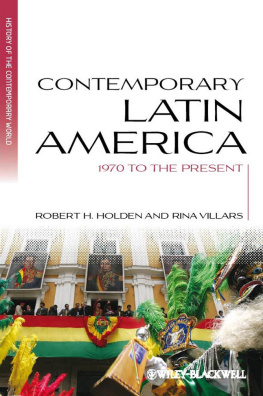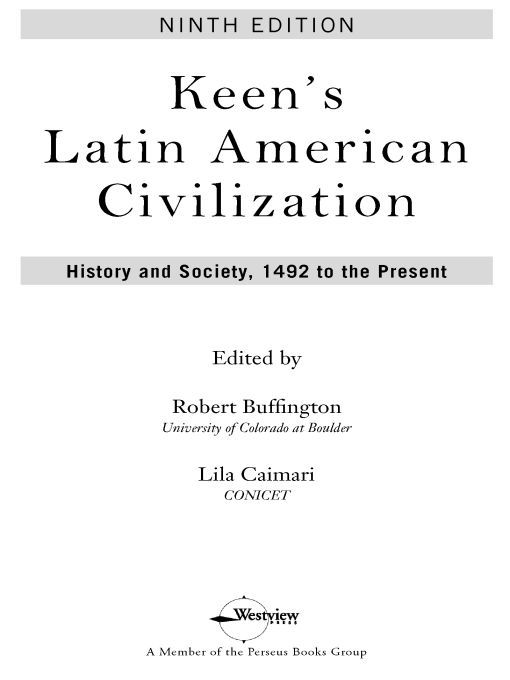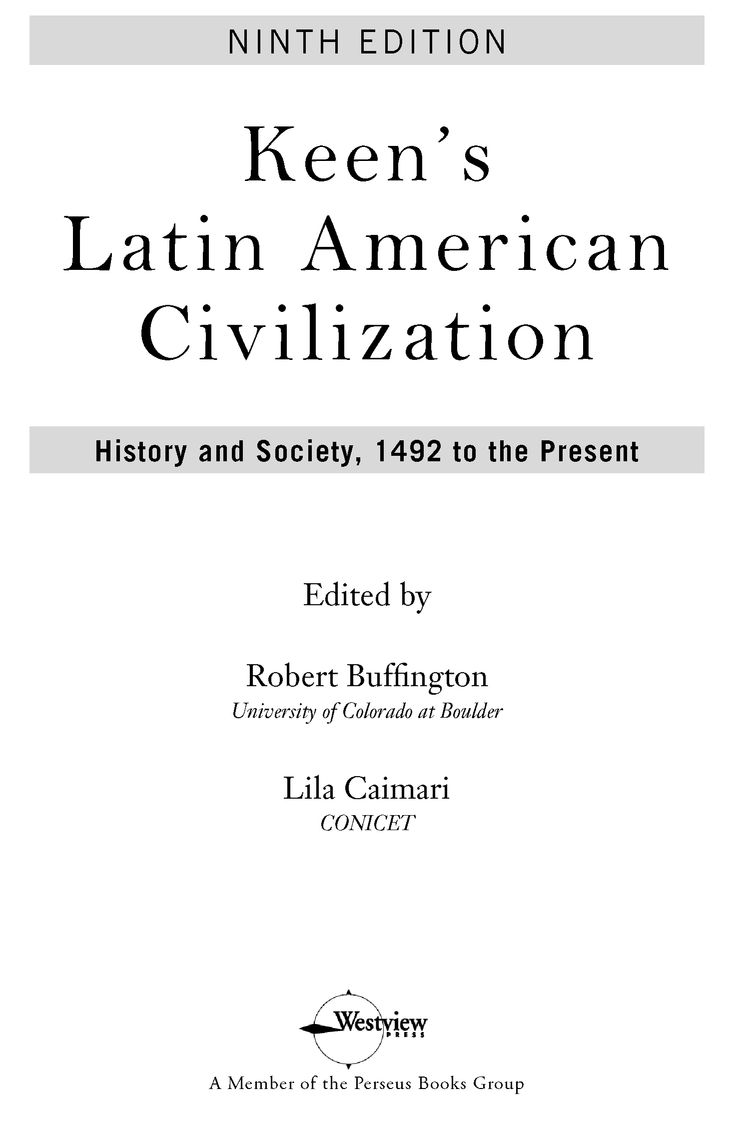Table of Contents
Preface
AS CONSCIENTIOUS TEACHERS concerned about the ever increasing cost of education, we debated putting out a new edition of Latin American Civilization just five short years after the eighth edition of Benjamin Keens classic text appeared. There were things we wanted to change about the eighth edition (almost as soon as it appeared), but nothing that couldnt wait another year or two, and certainly nothing that could justify the added financial cost to students or the time commitment on our part.
Then, a couple of years ago, Latin America became a much different place as regional politics took a sharp left turn. There had been warning rumbles of a political seismic shift with the earlier election of Hugo Chvez in Venezuela (1998) and Luiz Incio Lula da Silva in Brazil (2002), but despite their political leanings both men looked familiar enough to political observers. No one, however, would have predicted that by 2008, Latin Americans would have elected as president two leftist women (Michelle Bachelet in Chile and Cristina Fernndez de Kirchner in Argentina), an indigenous coca grower/union organizer (Evo Morales in Bolivia), and a radical priest (Fernando Lugo in Paraguay). Moreover, hand in glove with its political shift, a region at the forefront of 1990s globalization efforts had begun to reconsider its enthusiastic commitment to neoliberal economic restructuring programs.
Given the magnitude of this political/economic shift, we decided the time had come for a ninth edition of Latin American Civilization. It features several new excerpts dedicated to current events: an influential essay by former Mexican foreign minister Jorge Castaeda on Latin Americas left turn and interviews with Michelle Bachelet and Evo Morales. To round out this heavy dose of presidential politics, we added excerpts that address the public safety concerns of Brazilian city dwellers, the changing sexual politics of the Cuban revolution, and a provocative declaration by indigenous rights groups seeking the establishment of plurinational states.
These selections appear in a new Chapter 17, Globalization and Its Discontents, which replaces Contesting Power, Fighting Inequality in the previous edition. At the request of our loyal readers and following the dictates of our own better judgment, the excerpts from the Contesting Power chapter have been inserted into appropriate chronological chapters. This should make it easier on students and teachers alike.
We took the opportunity to add new selections to earlier chapters as well. Chapter 8 now includes Sor Juanas brilliant poem/expos of male foolishness. Chapter 14 features a revised and expanded version of Jos Guadalupe Posadas popular perspective on modernity with clearer images and a sharper interpretive focus. Chapter 15 adds an important manifesto from Victor Ral Haya de la Torre, the founder of Perus APRA party (back in power in 2006). Chapter 16 includes a short excerpt from Brazilian Marxist Carlos Marighellas Minimanual for Urban Guerrillas and replaces Leo Masliahs brilliant but confusing essay on Turning the Nation into a Prison with Rodolfo Walshs impassioned and more accessible Open Letter to the Military Junta.
We also addedby popular demandthree new selections to the thematic chapter on U.S.-Latin American relations (Chapter 18). The White Mans Burden is a series of five turn-of-the-century political cartoons from the United States depicting its new Caribbean charges (acquired in the 1898 Spanish-American War) as young women and native children. Dissent Within the Ranks excerpts a 1965 speech by Senator J. William Fulbright condemning the Johnson administration for doctoring intelligence to justify intervention in the Dominican Republic. Covert Operations includes selections from a controversial CIA manual used to train Nicaraguan Contras in a U.S.-sponsored guerrilla war against the Sandinista government.
A complex project like Latin American Civilization requires teamwork. We couldnt have managed without the enthusiasm, patience, good advice, and gentle prodding of the editorial staff at Westview Press, especially Karl Yambert, Brooke Kush, Kelsey Mitchell, Annie Lenth, and Chrisona Schmidt. Richard Shindell gave invaluable editorial advice. Pedro Porben provided crucial background on Cuban comics and the Virgilio cartoon from Mella. This is a much better book thanks to their help. For its inevitable defects, we accept full responsibility.
Robert Buffington University of Colorado at Boulder
Lila Caimari CONICET
PART ONE
INDIAN AND HISPANIC ORIGINS
ANCIENT AMERICA ON THE EVE OF CONQUEST
LATIN AMERICAN COLONIAL SOCIETY, and especially Spanish American colonial society, was shaped largely by the interaction of Hispanic (Spanish and Portuguese) invaders with the Indian peoples who had inhabited the Americas for thousands of years. The Indians usually responded to the arrival of European invaders with armed resistance. After the European conquest, the Indians continued to resist with a variety of strategies, including revolts, flight, riots, and sabotage. Sometimes they turned their masters legal codes to their own advantage. Thanks to this unyielding spirit and despite immense loss of life and inestimable suffering, the Indian communities in key areas of Latin America survived the storm of conquest and colonial oppression with their cultural identity largely intact. However, the Indians did undergo some acculturation in the form of a more or less nominal acceptance of Christianity and a more willing acceptance of European tools, work animals, crafts, foods, and other material elements. Resistance to Hispanic rule, however, characterized Indian-Hispanic relations in general and was a major source of tension in colonial life.
Indian culture and the Indians response to the Hispanic invaders were shaped by a long history on the American continents. The Indians arrived from Asia by way of the Bering Strait no fewer than forty thousand years ago and in the course of time spread through North and South America and eventually developed a wide range of cultural types, ranging from nomadic groups of hunters and food gatherers to the elaborate empires of the Aztecs and the Inca and the culturally advanced Mayan states. These three civilizations had certain features in common. All were based on intensive farming that supported the development of a large sedentary population and considerable division of labor. These civilizations, however, also evolved along distinctive lines. Mayan culture was distinguished by impressive achievements in writing, calendrical science, mathematics, and architecture. The Aztecs were mighty warriors, and a distinctive feature of their religion was large-scale human sacrifice. The Inca were the greatest empire builders of ancient America, and they made a serious and largely successful effort to unify the institutions and language of their extensive empire.
Modern scholars recognize that despite the decapitation and degradation of these states by the conquest, many of their institutions and much of their culture survived into the nineteenth century and even down to the present. Thus the history and culture of colonial Latin America (and even modern Latin America) cannot be understood without a knowledge of the high civilizations of ancient America.
1. AZTEC WARFARE


